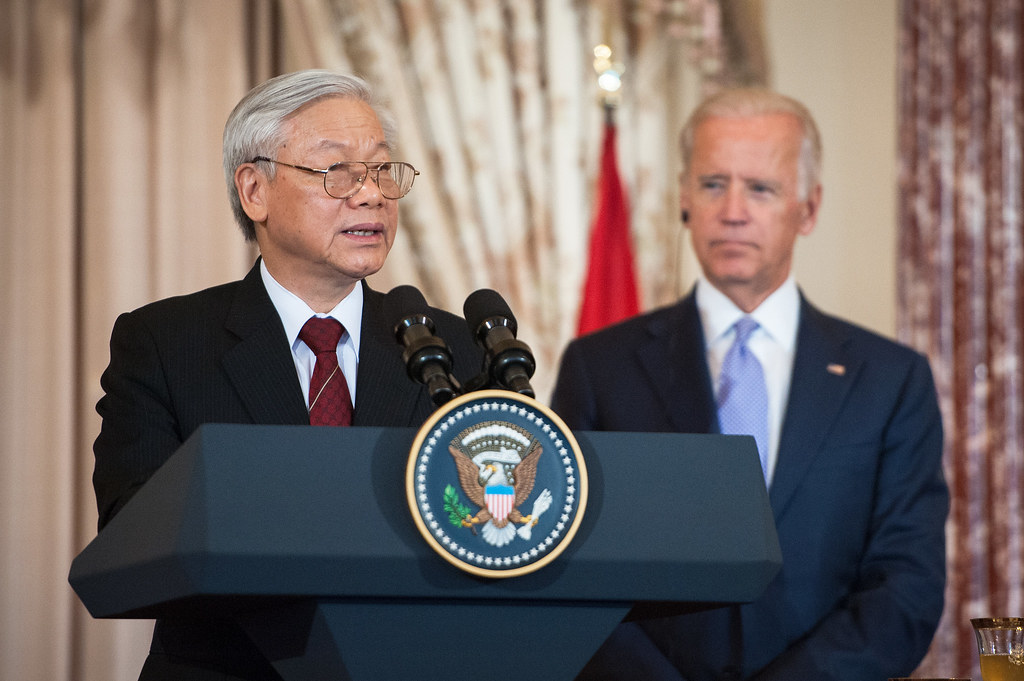 |
| Image: Flickr User - U.S. Department of State |
By Zach Przystup
With some “diplomatic insight and political vision” the US could write a new future with Vietnam.
Vietnam will start the new year with a bang. Next month, its Communist Party (CPV) will hold a momentous 12th National Congress and reshuffle its top three positions of party chief, president, and prime minister. In terms of foreign policy, their priority will be deciding whether to hew closer to the United States or China. Lately, China’s Pacific power grab has inspired a renaissance in U.S.-Vietnam relations. For the U.S., sustaining this welcome trend will require a more complete reconciliation over its tragic history with Vietnam.
Recent progress in U.S.-Vietnam relations has been encouraging. A summer trip to the White House by Nguyen Phu Trong, head of the CPV, signaled how their economic and security interests are converging.
Vietnam is already America’s largest trading partner in Southeast Asia; once ratified, the Trans-Pacific Partnership should further boost economic ties. In the South China Sea, Washington and Hanoi both cast a wary eye on Beijing’s Great Sandcastles. It is no coincidence that Washington has pledged closer maritime cooperation and temporarily lifted a ban on the sale of lethal weapons to Vietnam.
Yet for all their shared interests, relations are not all they could be. In the U.S., human rights issues and the prospect of befriending a communist country are unresolved concerns, while some in the CPV still fret that Washington seeks a changing of the guard in Hanoi. Above all, the war legacy still haunts both sides. Converging geopolitical interests matter, but a more complete reconciliation over that great human tragedy is essential to realizing the full potential of U.S.-Vietnam relations.
Read the full story at The Diplomat
